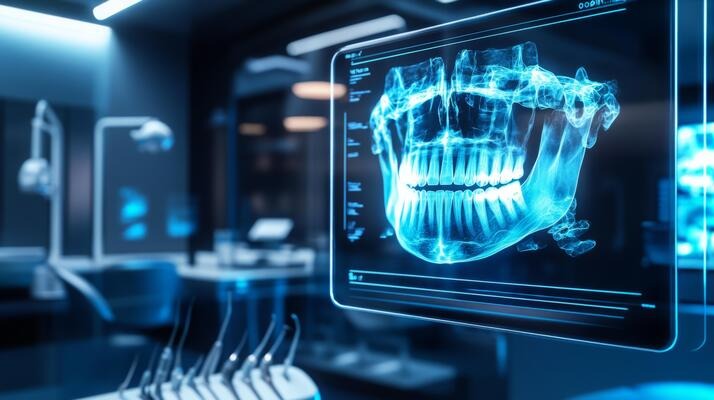Tooth loss is a common issue that can affect people of all ages, but its consequences go far beyond the obvious gap in a smile. Missing teeth can influence how you eat, speak, and even how your face looks over time. While some may view it as a natural part of aging, modern dentistry emphasises prevention, early treatment, and restoration to maintain long-term oral health. The impact of tooth loss is physical, emotional, and social, making it important to understand both its causes and solutions.
Why Tooth Loss Happens
There are several reasons why a person may lose one or more teeth. Gum disease, also known as periodontal disease, is the leading cause among adults. This condition begins with gingivitis—mild inflammation of the gums—and can progress to periodontitis, where infection damages the tissues and bone supporting the teeth. Without intervention, teeth may loosen and eventually fall out.
Severe tooth decay is another major factor. When cavities are left untreated, bacteria can penetrate deep into the tooth structure, causing irreversible damage that often results in extraction. Accidents and trauma—whether from sports injuries, falls, or biting into hard objects—can also cause teeth to break or be knocked out completely.
Age, genetics, smoking, certain medical conditions such as diabetes, and poor oral hygiene habits all play a role in increasing the risk. Understanding these risk factors can help in taking steps to prevent tooth loss in the first place.
The Physical and Emotional Impact
Losing teeth is not just a matter of appearance—it can lead to significant functional issues. Chewing becomes more difficult, which may limit the types of foods you can comfortably eat. This can cause nutritional deficiencies over time. Missing teeth also place uneven pressure on the remaining ones, potentially leading to further damage or wear.
Aesthetically, gaps in your smile can alter your facial structure. Without the support of teeth, the jawbone can shrink, causing the lips and cheeks to sink inward and making a person appear older than they are.
Emotionally, tooth loss can affect self-confidence and social interactions. People may avoid smiling or speaking in public, leading to reduced social engagement and even feelings of isolation.
Modern Solutions for Missing Teeth
Thankfully, advances in dentistry mean that tooth loss no longer has to be a permanent setback. Today, there are multiple restoration options including dental implants, bridges, and dentures.
Dentures, in particular, have come a long way from their older, less comfortable designs. With custom fitting and advanced materials, modern dentures provide a natural look and a secure fit. For many patients, they offer an ideal balance of affordability, function, and aesthetics. In fact, the latest innovations deliver natural aesthetics and durability in dentures that can closely mimic real teeth while providing reliable, long-term performance.
These dentures not only restore your ability to chew and speak properly but also help maintain your facial structure by supporting the surrounding tissues. Properly fitted dentures can significantly improve quality of life for those affected by multiple tooth loss.
Prevention is the Best Approach
While tooth replacement options are effective, preventing tooth loss should always be the priority. Good oral hygiene is the foundation—brushing twice daily with fluoride toothpaste, flossing at least once a day, and rinsing with an antimicrobial mouthwash all help to control harmful bacteria.
Regular dental check-ups are essential for early detection of gum disease, cavities, and other issues that can lead to tooth loss if ignored. Your dentist can also provide professional cleaning to remove hardened plaque (tartar) that can’t be removed with regular brushing.
Lifestyle choices matter as well. Avoiding tobacco products greatly reduces the risk of gum disease, while a balanced diet rich in vitamins and minerals supports healthy teeth and gums. Wearing a mouthguard during sports activities can help prevent trauma-related tooth loss.
Adjusting to Life After Tooth Loss
If tooth loss does occur, adapting to restorative options can take time. New dentures or bridges may feel unfamiliar at first, and you might need to relearn how to chew certain foods or pronounce some words. With practice and regular adjustments by your dentist, these challenges usually diminish quickly.
Daily care is also important for maintaining restorations. Dentures, for example, should be cleaned thoroughly each day and soaked overnight in a special solution to preserve their shape and prevent bacteria buildup. Regular dental visits ensure they continue to fit well as your mouth changes over time.
Emotional Adaptation and Self-Confidence
Beyond the practical aspects, there’s an emotional journey to adjusting after tooth loss. Some people initially struggle with the idea of having replacement teeth, associating them with aging or poor health. However, the reality is that modern dental restorations can be so natural-looking that others may not even notice the difference.
Regaining your smile often means regaining your confidence. Being able to speak, eat, and smile without worry can make a significant difference in daily life. At the same time, it’s important to maintain perspective—caring for your remaining natural teeth and restorations is essential for long-term oral health. For some, this renewed focus can become so strong that it borders on being obsessed with your teeth, which has its own set of considerations.


